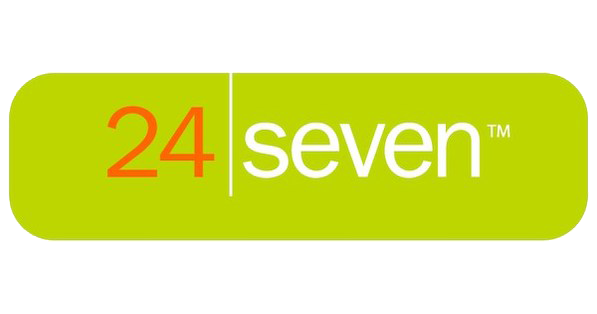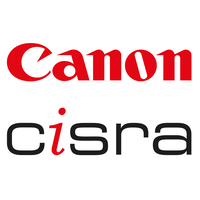Cloud technology has transformed the way businesses build and deploy web applications, offering scalability, flexibility, and cost-efficiency. Cloud platforms such as Amazon Web Services (AWS), Microsoft Azure, and Google Cloud provide a wide range of services and resources that enable businesses to develop, host, and scale their web applications. Here, we will explore the significance of cloud technology and how WNPL can leverage it to deliver robust and scalable web solutions.
The Significance of Cloud Technology
Cloud technology has revolutionized the web application development landscape. Here are key reasons why cloud technology is important:
- Scalability and Elasticity:
Cloud platforms offer on-demand scalability, allowing web applications to handle varying workloads and user demands. With cloud infrastructure, businesses can easily scale their applications up or down based on traffic patterns, ensuring optimal performance and cost-efficiency.
- Reliability and Availability:
Cloud providers offer robust infrastructure with built-in redundancy and fault tolerance mechanisms. Web applications deployed on cloud platforms benefit from high availability, as the underlying infrastructure is designed to minimize downtime and provide reliable access to applications and data.
- Cost Efficiency:
Cloud technology enables businesses to pay for the resources they actually consume, eliminating the need for upfront infrastructure investments. With flexible pricing models and the ability to scale resources as needed, businesses can optimize costs and allocate resources efficiently.
- Global Reach and Accessibility:
Cloud platforms have data centers located worldwide, enabling businesses to deploy their web applications closer to their target audience. This reduces latency and ensures a smooth user experience, regardless of geographic location.
- Security and Compliance:
Cloud providers implement robust security measures and compliance certifications to protect data and applications. They offer advanced security features, including data encryption, access controls, and monitoring tools, to ensure the confidentiality, integrity, and availability of sensitive information.
Cloud Technology Services by WNPL
At WNPL, we leverage cloud technology to develop and deploy scalable and reliable web applications. Our experienced team has expertise in various cloud platforms and services, including AWS, Azure, and Google Cloud. Our services include:
- Cloud Consulting and Strategy:
We provide consultation services to help you determine the best cloud strategy for your web application. We assess your requirements, evaluate different cloud providers, and develop a tailored plan to leverage cloud technology effectively.
- Cloud Infrastructure Setup:
We assist in setting up and configuring cloud infrastructure on platforms such as AWS, Azure, or Google Cloud. This includes provisioning virtual machines, storage resources, networking components, and other required services to create a scalable and reliable infrastructure for your web application.
- Application Deployment and Management:
We deploy your web application to the cloud environment, ensuring seamless integration with the chosen cloud platform. We manage the application's lifecycle, including version control, continuous integration/continuous deployment (CI/CD), and monitoring for performance and availability.
- Auto Scaling and Load Balancing:
We implement auto-scaling mechanisms and load balancing techniques to ensure that your web application can handle varying traffic loads. This ensures optimal performance, resource utilization, and cost-efficiency during peak demand periods.
- Data Storage and Database Services:
We leverage cloud-based storage services and database solutions, such as Amazon S3, Azure Blob Storage, or Google Cloud Storage, to securely store and manage your application data. We design and implement scalable database architectures, utilizing managed database services like AWS RDS, Azure SQL Database, or Google Cloud SQL.
- Serverless Architecture:
We build serverless web applications using services like AWS Lambda, Azure Functions, or Google Cloud Functions. Serverless architecture eliminates the need for managing server infrastructure, allowing for efficient resource utilization and cost optimization.
- Cloud Security and Compliance:
We implement robust security measures to protect your web application
and data in the cloud. This includes access controls, encryption, intrusion detection, and compliance with relevant security standards and regulations.
- Cloud Monitoring and Optimization:
We set up monitoring tools and implement proactive monitoring and alerting systems to ensure the performance, availability, and cost-effectiveness of your web application in the cloud. We continuously optimize resource utilization and cost efficiency through resource right-sizing and performance tuning.
By leveraging our cloud technology services, you can harness the power of cloud platforms to develop scalable, reliable, and cost-efficient web applications. Our expertise in AWS, Azure, and Google Cloud allows us to design and implement cloud solutions that meet your specific business requirements and provide a competitive edge in the digital landscape.
Tools and Frameworks employed
Here are some tools and frameworks commonly employed by WNPL when working with Cloud Technology for web applications:
- Amazon Web Services (AWS):
AWS is a comprehensive cloud computing platform that offers a wide range of services for building and deploying web applications. It provides scalable infrastructure, storage, databases, and other services to support the development and operation of cloud-based applications.
- Microsoft Azure:
Azure is a cloud computing platform by Microsoft that offers a variety of services and tools for building, deploying, and managing web applications. It provides services such as virtual machines, databases, AI and machine learning, and more, enabling businesses to leverage the power of the cloud.
- Google Cloud Platform (GCP):
GCP is a suite of cloud computing services provided by Google. It offers a wide range of services, including compute, storage, networking, and machine learning, to help organizations build and scale their web applications in the cloud.
- Kubernetes:
Kubernetes is an open-source container orchestration platform that automates the deployment, scaling, and management of containerized applications. It provides a robust and scalable infrastructure for running cloud-native applications, ensuring high availability and efficient resource utilization.
- Docker:
Docker is a popular containerization platform that enables the creation and deployment of lightweight, isolated containers for applications. It simplifies the packaging and distribution of web applications, allowing for consistent deployment across different environments.
- Terraform:
Terraform is an infrastructure-as-code tool that allows for the provisioning and management of infrastructure resources in a declarative manner. It enables the creation and modification of cloud resources across multiple providers, making it easier to manage the infrastructure for web applications deployed in the cloud.
- Serverless Framework:
The Serverless Framework is a framework that simplifies the deployment and management of serverless applications. It supports various serverless platforms, such as AWS Lambda and Azure Functions, and provides a streamlined development workflow for building scalable and cost-efficient web applications.
- Apache Kafka:
Apache Kafka is a distributed streaming platform that enables the building of real-time data streaming applications. It provides scalable, fault-tolerant, and high-performance messaging capabilities, making it suitable for building event-driven architectures in cloud-based web applications.
- Prometheus:
Prometheus is an open-source monitoring and alerting toolkit that is widely used for monitoring cloud-based applications. It provides a flexible data model, powerful query language, and extensive integrations with other monitoring tools, enabling the collection and analysis of metrics for web application performance monitoring.
- Jenkins:
Jenkins is an open-source automation server that enables continuous integration and continuous delivery (CI/CD) pipelines for web applications. It automates the build, test, and deployment processes, ensuring the efficient and reliable delivery of cloud-based web applications.
- Istio:
Istio is an open-source service mesh platform that provides a unified and secure way to connect, manage, and secure microservices in cloud-based web applications. It offers advanced traffic management, observability, and security features, allowing for better control and visibility of application traffic.
- HashiCorp Vault:
HashiCorp Vault is a popular tool for managing secrets and sensitive data in cloud environments. It provides a secure and centralized repository for storing and accessing credentials, API keys, and other sensitive information used by web applications deployed in the cloud.
- Firebase:
Firebase is a comprehensive mobile and web application development platform offered by Google. It provides a range of services, including authentication, real-time database, cloud storage, and hosting, simplifying the development and deployment of cloud-based web applications.
- Ansible:
Ansible is an open-source automation tool that allows for the automation of configuration management, application deployment, and orchestration tasks in cloud environments. It provides a simple and declarative language for defining infrastructure as code, enabling efficient and scalable deployment of web applications.
- Grafana:
Grafana is an open-source data visualization and monitoring tool that integrates with various data sources, including cloud-based monitoring systems. It enables the creation of rich dashboards and visualizations to monitor and analyze the performance of cloud-based web applications.
- Apache JMeter:
Apache JMeter is a popular open-source tool for load testing and performance measurement of web applications. It allows for the simulation of high user loads and measures the application's response time and throughput, helping to identify performance bottlenecks and ensure optimal performance in cloud environments.
- GitLab CI/CD:
GitLab CI/CD is a built-in continuous integration and continuous delivery platform provided by GitLab. It allows for the automation of building, testing, and deploying web applications in cloud environments, ensuring efficient and reliable software delivery.
- ELK Stack:
The ELK Stack (Elasticsearch, Logstash, Kibana) is a powerful combination of open-source tools used for log management and analysis in cloud-based web applications. Elasticsearch is a distributed search and analytics engine, Logstash is a data pipeline tool for collecting and processing logs, and Kibana is a data visualization dashboard.
- Apache Cassandra:
Apache Cassandra is a highly scalable and distributed NoSQL database that is commonly used in cloud environments. It provides high availability, fault tolerance, and horizontal scalability, making it suitable for handling large volumes of data in cloud-based web applications.
- Redis:
Redis is an open-source, in-memory data structure store that can be used as a database, cache, or message broker. It offers high performance and supports various data structures, enabling efficient data storage and retrieval in cloud-based web applications.
- Apache Spark:
Apache Spark is a fast and general-purpose distributed computing system that provides in-memory processing capabilities. It is often used for big data processing and analytics in cloud-based web applications, enabling high-speed data processing and analysis.
- Apache Kafka:
Apache Kafka is a distributed streaming platform that enables the building of real-time data streaming applications. It provides scalable, fault-tolerant, and high-performance messaging capabilities, making it suitable for building event-driven architectures in cloud-based web applications.
- HashiCorp Consul:
HashiCorp Consul is a service mesh and service discovery tool that enables the dynamic discovery, configuration, and management of services in cloud environments. It helps to improve the scalability and reliability of web applications by providing features such as service registration, health checking, and load balancing.
- Prometheus:
Prometheus is an open-source monitoring and alerting toolkit that is widely used for monitoring cloud-based applications. It provides a flexible data model, powerful query language, and extensive integrations with other monitoring tools, enabling the collection and analysis of metrics for web application performance monitoring.
- Grafana:
Grafana is an open-source data visualization and monitoring tool that integrates with various data sources, including cloud-based monitoring systems. It enables the creation of rich dashboards and visualizations to monitor and analyze the performance of cloud-based web applications.
- Apache Lucene:
Apache Lucene is a high-performance search engine library that provides powerful full-text search capabilities. It can be integrated into cloud-based web applications to enable advanced search functionality and enhance the retrieval of relevant information.
- Apache Hadoop:
Apache Hadoop is an open-source framework for distributed storage and processing of large datasets. It allows for the distributed processing of data across a cluster of computers, enabling efficient data storage and analysis in cloud-based web applications.
- HashiCorp Vault:
HashiCorp Vault is a popular tool for managing secrets and sensitive data in cloud environments. It provides a secure and centralized repository for storing and accessing credentials, API keys, and other sensitive information used by web applications deployed in the cloud.
- NGINX:
NGINX is a high-performance web server and reverse proxy server that is commonly used in cloud-based web applications. It helps to improve the performance, scalability, and reliability of web applications by efficiently handling incoming requests and distributing them to backend servers.
- Docker:
Docker is a containerization platform that allows for the packaging and deployment of web applications in lightweight, isolated containers. It simplifies the deployment process and ensures consistency across different environments, making it easier to manage cloud-based web applications.
Further reading
- "Cloud Computing: Concepts, Technology, and Architecture" by Thomas Erl, Ricardo Puttini, and Zaigham Mahmood:
This book provides an in-depth understanding of cloud computing concepts, technologies, and architectures. It covers topics such as virtualization, cloud service models, deployment models, and security.
- "Architecting the Cloud: Design Decisions for Cloud Computing Service Models" by Michael J. Kavis:
This book offers practical guidance on designing cloud-based solutions, covering topics such as infrastructure as a service (IaaS), platform as a service (PaaS), and software as a service (SaaS).
- "Cloud Native Java" by Josh Long and Kenny Bastani:
This book explores building Java-based applications for the cloud using cloud-native principles and technologies such as Spring Boot, Docker, and Kubernetes.
- "Cloud Computing: Principles and Paradigms" edited by Rajkumar Buyya, James Broberg, and Andrzej Goscinski:
This book provides an overview of cloud computing principles, paradigms, and research directions. It covers topics such as virtualization, resource provisioning, elasticity, and cloud-based applications.
- "Cloud Security and Privacy: An Enterprise Perspective on Risks and Compliance" by Tim Mather, Subra Kumaraswamy, and Shahed Latif:
This book focuses on cloud security and privacy considerations, offering insights into risk management, compliance, data protection, and access control in cloud environments.
- "AWS Certified Solutions Architect Official Study Guide" by Joe Baron, Hisham Baz, and Tim Bixler:
This book is a comprehensive guide to preparing for the AWS Certified Solutions Architect exam, covering various AWS services and architectural best practices.
- "Azure for Architects" by Ritesh Modi:
This book offers insights into designing scalable and secure solutions on the Microsoft Azure cloud platform. It covers topics such as infrastructure design, storage, networking, and security.
- "Google Cloud Platform in Action" by J. Echeverri and J. L. Jones:
This book provides an introduction to building applications on the Google Cloud Platform. It covers topics such as compute, storage, networking, and machine learning services.
- "Kubernetes: Up and Running" by Brendan Burns, Joe Beda, and Kelsey Hightower:
This book offers a practical guide to getting started with Kubernetes, a popular container orchestration platform. It covers topics such as deployment, scaling, and management of containerized applications.
- "Serverless Architectures on AWS" by Peter Sbarski:
This book explores the serverless computing paradigm and its implementation on the AWS platform. It covers topics such as AWS Lambda, API Gateway, DynamoDB, and event-driven architectures.
- "Cloud Computing: From Beginning to End" by Ray J. Rafaels:
This book provides a comprehensive overview of cloud computing concepts, architecture, deployment models, and implementation strategies.
- "Cloud Architecture Patterns: Using Microsoft Azure" by Bill Wilder:
This book explores various cloud architecture patterns and their practical implementation using Microsoft Azure. It covers topics such as scalability, resilience, and data management in the cloud.
- "Cloud Computing: Principles, Systems, and Applications" edited by Nick Antonopoulos, Lee Gillam, and Paolo Bellavista:
This book offers an in-depth understanding of cloud computing principles, systems, and applications. It covers topics such as cloud storage, resource management, and mobile cloud computing.
- "AWS Certified Cloud Practitioner Study Guide: CLF-C01 Exam" by Ben Piper and David Clinton:
This book is a comprehensive study guide for the AWS Certified Cloud Practitioner exam. It covers various AWS services, pricing models, and best practices for cloud adoption.
- "Cloud Native Development Patterns and Best Practices: Practical Architectural Patterns for Building Modern, Distributed Cloud Native Systems" by John Gilbert:
This book explores cloud-native development patterns and best practices, including containerization, microservices, and serverless computing.
- "Cloud Computing: A Hands-On Approach" by Arshdeep Bahga and Vijay Madisetti:
This book provides a practical approach to understanding and implementing cloud computing concepts, including virtualization, service models, and cloud deployment strategies.
- "Google Cloud Platform for Developers: Building Applications and Managing Services" by Ted Hunter, Steven Porter, and Steven Czerwinski:
This book focuses on Google Cloud Platform (GCP) and provides insights into building applications and managing services on GCP.
- "Cloudonomics: The Business Value of Cloud Computing" by Joe Weinman:
This book explores the economic benefits and business value of cloud computing, covering topics such as cost models, pricing strategies, and cloud ROI.
- "Cloud Computing: A Practical Approach" by Anthony T. Velte, Toby J. Velte, and Robert Elsenpeter:
This book offers a practical approach to cloud computing, covering topics such as cloud architecture, deployment models, security, and governance.
- "Mastering Azure Analytics: Architecting in the Cloud with Azure Data Lake, HDInsight, and Spark" by Zoiner Tejada, James D. Miller, and others:
This book focuses on Azure analytics services and provides insights into building scalable and high-performance data analytics solutions on the Azure platform.









